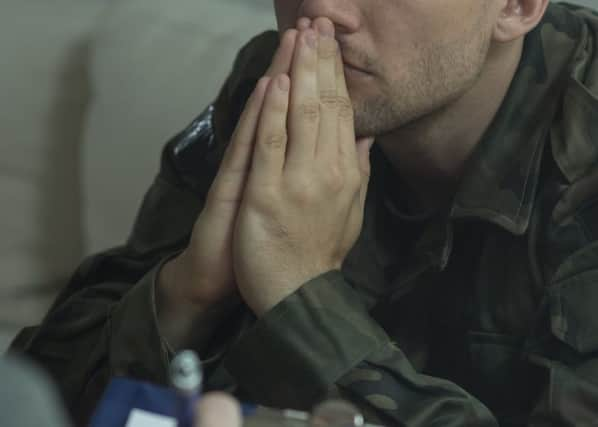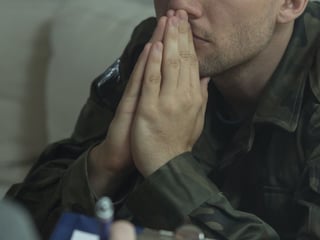RAF mechanic who witnessed ‘horrendous’ Goodwood plane crash speaks out about military hell, PTSD and suicidal thoughts


Brutal initiation ceremonies, an assault and studying troubles have been described by a Sussex veteran - who asked to remain anonymous due to the sensitive nature of his case - which he said had left him considering taking his own life.
He left the RAF after four-and-a-half years and thought he had dealt with his mental health struggles.
Advertisement
Hide AdAdvertisement
Hide AdBut what he described as an ‘horrendous’ plane crash at the Goodwood Aerodrome, Chichester, in 2001, triggered the realisation he needed help with what was later diagnosed as post-traumatic stress disorder (PTSD).
“When I saw the crash I thought I could deal with it but I just couldn’t,” he said.
“What I had thought I had dealt with, I hadn’t. I had just suppressed it. When I saw the crash I went back into a depression.”
Joining the RAF had been his dream job, but things quickly soured when he was posted to a base outside Sussex and the bullying began, he has said.
Advertisement
Hide AdAdvertisement
Hide Ad“I was stripped naked, shoved on emergency water supplies and chained to chairs and stuff,” he said.
“I was also assaulted by a corporal, who threw an engine component in my face.”
The veteran said he reported the assault and sought help for depression.
But he claimed his symptoms were not taken seriously, the initiations were shrugged off as ‘banter’ and he was persuaded not to report the assault to police as it could ‘ruin his career’.
Advertisement
Hide AdAdvertisement
Hide AdAround two years into his training, he said a culmination of numerous things came to a head. He said: “I just couldn’t think straight or study properly and I considered taking my own life.
“I’d seen a psychiatrist for one afternoon and told I was fine, and to take some pills and have a week off.”
Despite acknowledging he had a problem, it still took around five years after the air crash for him to seek help.
Speaking of his depression, he said: “It is very absorbing and I was very insular.
Advertisement
Hide AdAdvertisement
Hide Ad“You don’t think about anyone else. I couldn’t think straight. I couldn’t sleep properly or eat properly.
“I had take to self-medication. I was risk taking - weaving in and out of traffic on my motorbike.
“I put a cheap price on my own head.”
Months of counselling, which he paid for privately, helped him work through the traumas and learn to cope with stress.
He said during one therapy session, he had to relive the crash, a flashback so vivid it felt like it had happened the day he dealt with it.
“After the crash there was an incredible silence,” he said.
Advertisement
Hide AdAdvertisement
Hide Ad“No birds were singing and all there was was the smell of mud from where the aircraft had crashed.”
The veteran, from Worthing, got in touch following our coverage of military suicides. He backed our call for more to be done to support military veterans, including the recording of their suicides.
Defence Minister Tobias Ellwood has previously said the Government ‘could not be complacent’ about service personnel’s mental health, insisting their wellbeing was the ‘top priority’.
